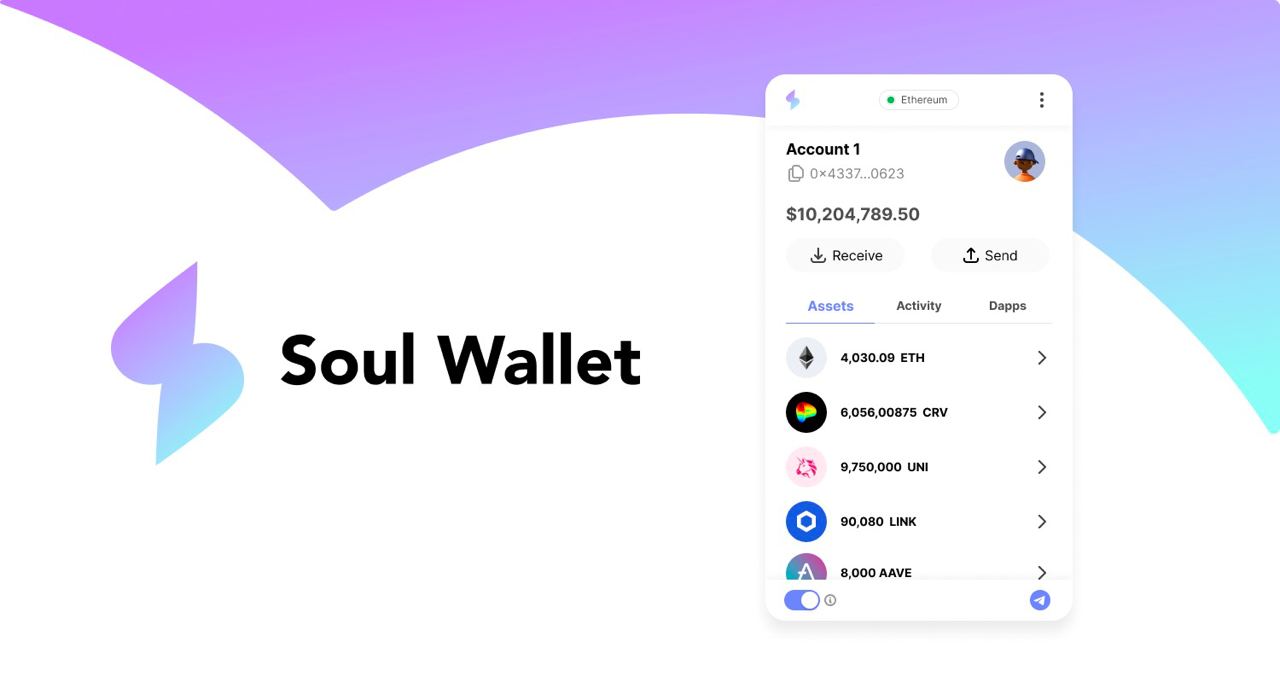Backed with $3M, Soul Wallet aims to bring self-hosted crypto wallets to the next billion
If you own a non-custodial crypto wallet like MetaMask, you know the headache of keeping your 16-word seed phrase safe. That’s the responsibility that comes with having full control over one’s digital assets.
A third-party wallet, like one hosted by an exchange, on the other hand, stores private keys on users’ behalf and provides a better user experience. The risk is the lack of transparency over how user funds are managed, which could lead to incidents like the FTX meltdown.
Some believe a new technical change in the Ethereum ecosystem is about to solve the dilemma between asset control and user experience. At the center of the movement is the ERC-4337 standard introduced by the Ethereum Foundation, the non-profit research affiliate of Ethereum, the world’s second-largest cryptocurrency that boasts a vibrant developer community.
Jiajun Zeng, a former product manager at TikTok’s parent firm ByteDance and Chinese on-demand services giant Meituan, was amongst the first to leverage the new standard. His startup Soul Wallet just raised $3 million in a seed funding round to offer an online, self-custodial Ethereum wallet built on top of ERC-4337.
Comparing existing crypto wallets and wallets powered by the new technical upgrade is akin to “comparing Nokia to iPhones,” said Zeng in an interview with TechCrunch.
“After the FTX implosion, people are refocusing on how to achieve a better user experience on a self-host wallet,” observed Zeng.
At EthDenver, a major Ethereum developer conference that attracted over 30,000 attendees in the Colorado capital in early March, the new standard was generating plenty of buzz amongst blockchain application builders.
Through ERC-4337, Ethereum plans to bring smart contract capabilities to wallets (through what’s called “account abstraction”, but let’s not get into the nitty-gritty). In short, developers can program smart contracts, or lines of codes that execute predefined agreements, into wallets.

Image: Soul Wallet
Being smart means doing away with some of the legacy issues of crypto wallets, such as the reliance on seed phrases. Instead, smart contract-enabled wallets make it possible for users to recover their accounts via social recovery, such as using one’s trusted contacts, another wallet, or even a third-party service. For those who use WeChat, it’s a similar account recovery process.
Developers can also code other customized functions into wallets, such as letting users pay gas fees using stablecoins rather than limiting payments to Ethereum.
MetaMask, a popular self-custodial Ethereum wallet, uses an old cryptographic method called EOA, or externally owned accounts, where if a user loses their private keys, their funds are forever lost. Early mover Argent has incorporated some smart functions into its wallets but the features are still limited, said Zeng.
The challenge of introducing any new technological standard is scaling. MetaMask has sticky users because it’s compatible with many popular decentralized apps. The question is how Soul Wallet and other similar startups can compete to build a significant pool of partners.
Ethereum is promoting smart contract wallets as the future of Ethereum, so dApp developers will feel incentivized to make the switch, reckoned Zeng, an active member of the Ethereum community.
“We are targeting the next billion crypto adopters rather than trying to win users away” from the likes of MetaMask, said Zeng.
“In developing countries like South America and Africa, people are using cryptocurrencies to hedge against currency inflation, so it’s down to how crypto adoption can spread in these regions,” he continued.
“As for developed countries, adoption hinges on how dApps and NFTs are evolving.”
Soul Wallet is currently undergoing internal testing and is scheduled to launch in Q3 or Q4 after a series of stringent audits, according to Zeng. The team has a dozen people spanning the U.S., Japan, Thailand, and China.
Investors that participated in its latest “party” round include Struck Crypto, Game7DAO, NGC ventures, Dispersion Capital, Alchemy, Ankr and Signum Capital. The financing was also backed by a few notable angel investors such as David Hoffman and Ryan Sean Adams from Bankless; Kristof Gazso, the co-author of ERC-4337; Marc Zeller from Aave-Chan Initiative; Scott Moore from Gitcoin; Terence Tsao from Arbitrum; and Tim Beiko from Ethereum Foundation.
Updated on March 16, 2023 with the funding round’s investor list.

